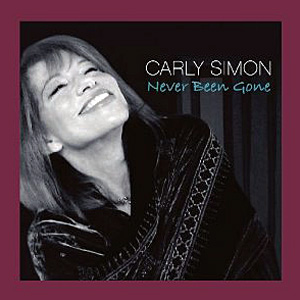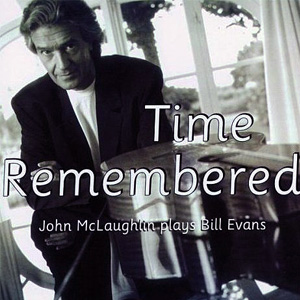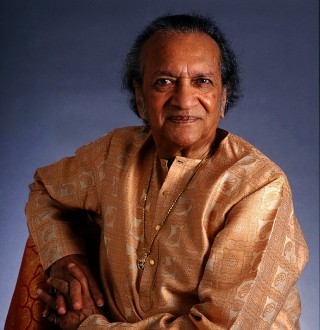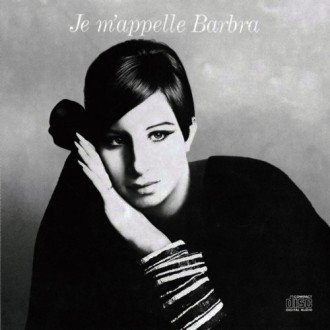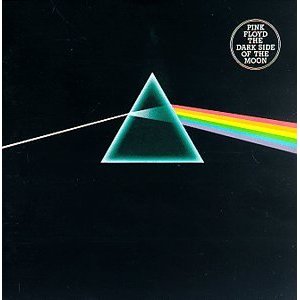Editor’s Blog: 2010
On 1 March, the Sunday Mail gave away a copy of the latest Carly Simon album, NEVER BEEN GONE. All you had to do was spend £1.50 on the paper and there it was, free, gratis, zilch. Was this clever or just plain stupid? The album sells for £6.85 on Amazon (as a CD and MP3 download) and is number 384 in Amazon’s sales chart - a leading seller in just one month of sales. I’m frankly puzzled. Won’t fans be a little upset over having spent their hard-earned cash on the album, only to find they could have acquired the whole album for free? And what about the record companies habitual moaning about free downloads? It may have been great for the Sunday Mail, but retailers and fans I imagine are very angry, and understandably. Increasingly, even great music is becoming nothing more than a marketing commodity with little or no intrinsic value. Frankly, I find it shameful and worrying.
On a more positive note, last week I spent many hours researching an artist for an article here on Shakenstir. John McLaughlin was born in Doncaster in 1943 and developed his talents and skills to become the world’s leading guitarist. He was aleader in fusing Eastern and Western music and has recorded with the world’s greatest jazz artists. He has also composed some of the most eexciting and accessible instrumental music, including a beautiful concerto (THE MEDITERRANEAN). I’m a fan but it took the research I carried out to discover just how great this musician is (check out http://www.shakenstir.co.uk/index.php/features/john-mclaughlin-times-remembered/features/16294/) and the huge number of recordings released (more than any artist or band to my knowledge). McLaughlin and Ravi Shankar are two fo the most influential artists of all time, and I’m so proud that they are currently sharing the limelight on Shakenstir right now.
1 April 2010
Today (purely for professional reasons) I ventured onto BBC Radio 1 at around lunch time to hear one very overpaid and undertalented young female presenter babbling on about nothing, encouraging phone-ins, praising mediocre music to the high heavens, and generally making an arse of herself. During her show she has a feature called ‘The Generator’ when she talks to a listener, in this case a 13 year-old girl from Brighton who declared her passion for Cheryl Cole. It got me thinking how this young listener would get to hear ‘real music’ and mature into a more discriminating music lover. For example, how will she get to learn about and hear Ravi Shankar, John McLaughlin, Pink Floyd, Beatles, Bob Dylan, Ani DiFranco, Miles Davis, Jimi Hendrix, Dirty Three, Frames, and the like. Radio 1 does, I suppose, serve a purpose in that it (like many mainstream pop radio stations) serves as a low level starting point for kids to ‘get into music’, as does TV’s Channel 4. My concern is how to they get to the next levels through (especially) UK broadcasters? How do they go from Lily Allen to Katey Brooks? My own journey started in a childhood spent in Hong Kong where and when my link to the Western world was through popular music, but at a quality level that I venture to suggest was far higher than it generally is today. My musical diet was made up when in the UK of acts like Mario Lanza, Harry Delefonte, Johnny Ray, and Sinatra - the music my dad had on 78 black laquer played with needles, which I listened and sang to in a darkened ‘front-room.’ I then went to Hong Kong at the age of around ten when it was The Four Tops, The Crystals, Sonny And Cher, Bobby Vee, Skeeter Davis, The Shirelles, The Shangri-Las, Tommy Roe, Bobby Darin, Gene Pitney and others - all played on local radio - which led to my record collecting, initially of 7″ vinyls in the late 50s (I know because when I purchased a single I wrote the year of purchase on the record’s sleeve and still have them) early 60s.
In around ‘64 (on my return to Hong Kong) I discovered artists like Dylan, Streisand, the Beatles and on my return to the UK, Pink Floyd and others via Radio Luxenberg and the pirate stations (usually listening under the bedclothes, late at night). Great music was available to hear; the journey of musical discovery and maturity was relatively easy, while the massive hype we see today hardly existed. Later in in my working life I lived in Australia for several years and discovered Joe Cocker, Dire Straits, Laurie Anderson and really got into Pink Floyd and The Modern Jazz Quartet. It was when I started Shakenstir (over ten years ago) that I discovered the Dirty Three, Frames, Ravi Shankar, John McLaughlin and then, through my associate JJ, dug deep into heavy rock with acts such as Symposium (through covering a live concert), Metallica et al. During my time living in London and working at Harrods in the late 60s, early 70’s, I discovered film and theatre music starting with the film ‘Z’ and the stage show of HAIR. Around nine years ago I was walking through Wrexham and happened upon a junk shop with piles of virtually unused classical vinyls which I grabbed for about a penny each.
And I’m still in transit on my personal journey of discovery, a journey that excites me more now than it ever has (in recent weeks I’ve unearthered Bad Company and Free!!), and again through JJ, I’ve learned that one act can lead one onto another via influences. As we celebrate the achievements of artists like Ravi Shankar and John McLaughlin on the pages of Shakenstir (mixed in with much newer artists and bands) I wonder and worry whether the majority of today’s youth will ever discover the true width and wonder of music, and it’s ability to excite, inspire and move beyond words.
Page: 1 2 3 4 5 6 7 8 9 10 11 12 13 14 15 16 17 18 19 20 21 22 23 24 25 26 27 28 29 30 31
|
|

|
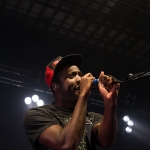
Bloc Party |
LATEST GALLERY IMAGES

Where Israel Goes, Misery Follows 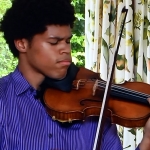
The Kanneh-Masons |
|
|


